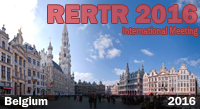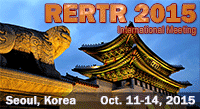IAEA/USA Interregional course on
Preparations to Ship Spent Nuclear Fuel (1997)
United States Implementation Strategy
For Research Reactor
Spent Fuel Shipments
![]() PDF version
NOT available
PDF version
NOT available
This lecture is provided below in HTML format with JPG images. Supplementary Lecture
L.1.3a contains additional images on research reactor spent fuel shipments.
Contact:
Mr. Kenneth Chacey
U. S. Department of Energy
Environmental Management
Forrestal Building
1000 Independence Avenue
Washington, DC 20585
Tel.: +1-202-586-9726
Fax: +1-202-586-5256
E-mail: [email protected]
IAEA/USA Interregional Training Course
Technical and Administrative Preparations Required for Shipment of Research Reactor Spent
Fuel to its Country of Origin
13-24 January 1997
Argonne, IL
L.1.3
United States Implementation Strategy
For Research Reactor
Spent Fuel Shipments
Kenneth A. Chacey
Acting Director, Office of Spent Fuel Management
Nuclear Material and Facility Stabilization
United States Department of Energy
What is Our Goal?
Reduce the threat of international nuclear weapons proliferation while enjoying the benefits of nuclear technology world wide.
United States
National Environmental Policy Act
- U.S. laws require government agencies to complete detailed scientific analysis
of any program/construction that may impact public safety or the environment.
- The Final Environmental Impact Statement was completed in February 1996. This analysis found no significant impacts resulting from the Spent Nuclear Fuel Acceptance Policy.
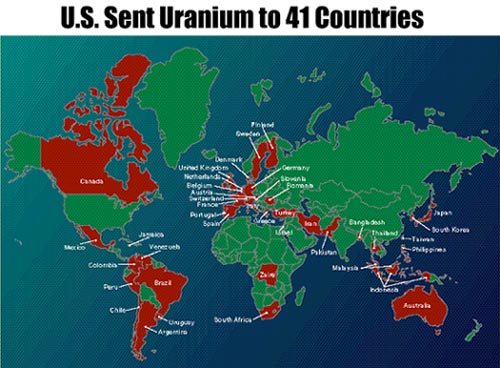
U.S. Research Reactor
Spent Nuclear Fuel
Acceptance Policy
- Research reactor spent nuclear fuel containing uranium enriched in the U.S.
will be accepted from 41 countries and managed in the United States
- About 20 metric tons - tons of HEU
- Includes aluminum-based and TRIGA research reactor spent fuel and target material
- About 20 metric tons - tons of HEU
- 10-year acceptance policy (May 13, 1996 to May 13, 2006)
- Provides lead time for reactor operators to develop own solutions
- Fuel irradiated during the ten year window will be accepted over a 13-year
period.
- Provides lead time for reactor operators to develop own solutions
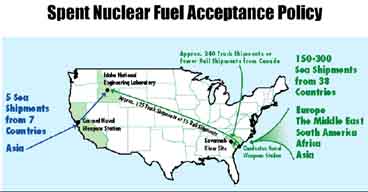
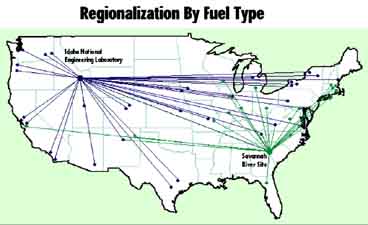
Acceptance Policy
Implementation Status
Litigation
- In July, South Carolina challenged the Department of Energy's decision in court
- South Carolina and the Department of Energy recently agreed to a litigation schedule
- Court hearing held on December 18, 1996
- Injunction vacated by court on December 30, 1996
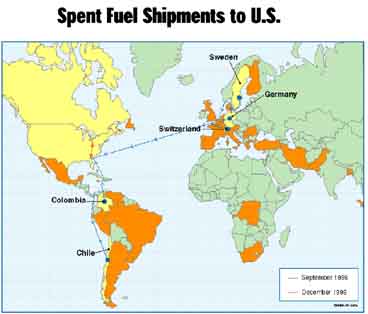
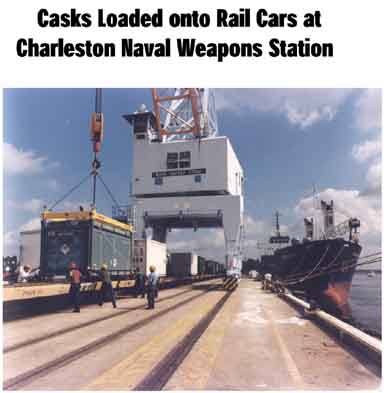
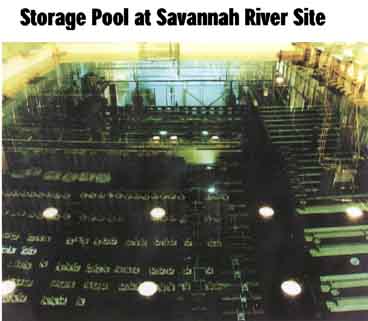
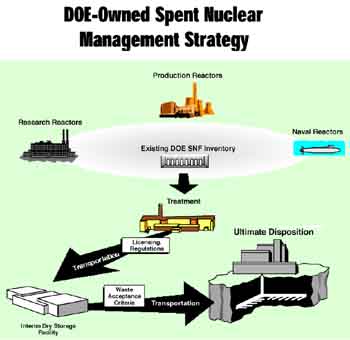
Acceptance Policy - Next Steps
- Continued contract negotiations for spent fuel acceptance
- Continued data collection on spent fuel characteristics
- Continued transportation planning and emergency preparedness activities
Developing Technology and
Long-Term Strategies for
Managing Spent Nuclear Fuel
- Aggressively pursuing technology research and development program for long-term management of its spent nuclear fuel
- Strongly encourage reactor operators to begin now to address the solutions for management of spent fuel in own countries.
- U.S. willing to cooperate with interested countries in developing new, viable solutions for managing the back-end of the fuel cycle
- Technical strategy established for managing aluminum-based spent fuel
- Develop environmentally friendly technologies for treatment, packaging, and disposal
- Technical strategy for management of non aluminum-based spent fuel formulated by end of year
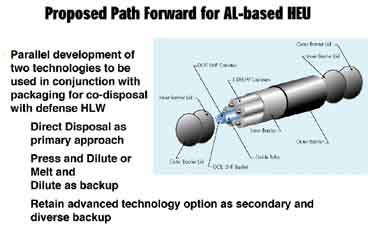
The Advanced LEU Fuels
Development Program at ANL
- Goal of program is development of higher-density LEU fuels to enable additional reactor conversions
- Program re-started in April 1996
- Detailed work plan developed
- New equipment ordered
- Technical studies and computer modeling work has begun
- First test irradiations expected by April 1997
- 5 year funding level of over $20 million
The Success of the RERTR Program
in Meeting Nuclear Weapons Nonproliferation Goals
- Since 1978, 26 research reactors (of these, 9 are U.S. reactors) are fully or partially converted
- Many other research reactors are in different stages of LEU conversion
- These conversions demonstrate importance of RERTR program in supporting nuclear weapons nonproliferation objectives
Concluding Remarks
- Program now in place to accept research reactor spent fuel
- U.S. program designed to allow reactor operators to transition into managing own spent fuel
- Initiatives underway to expand HEU-to-LEU conversions
- Advanced LEU fuel development
- New RERTR partners
- Advanced LEU fuel development



